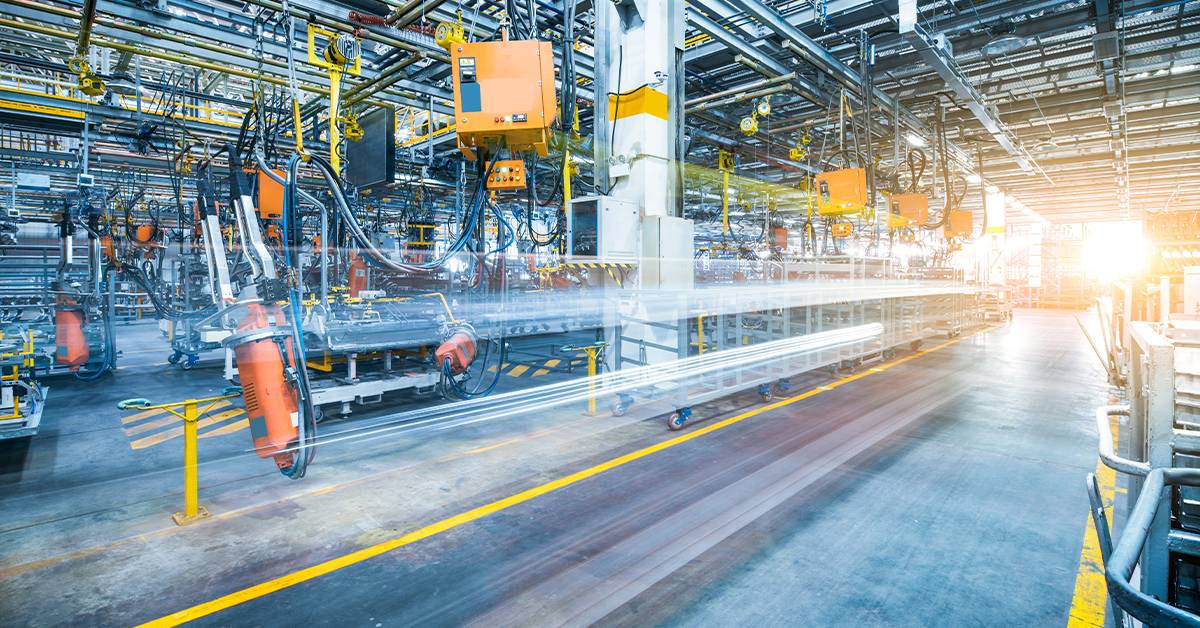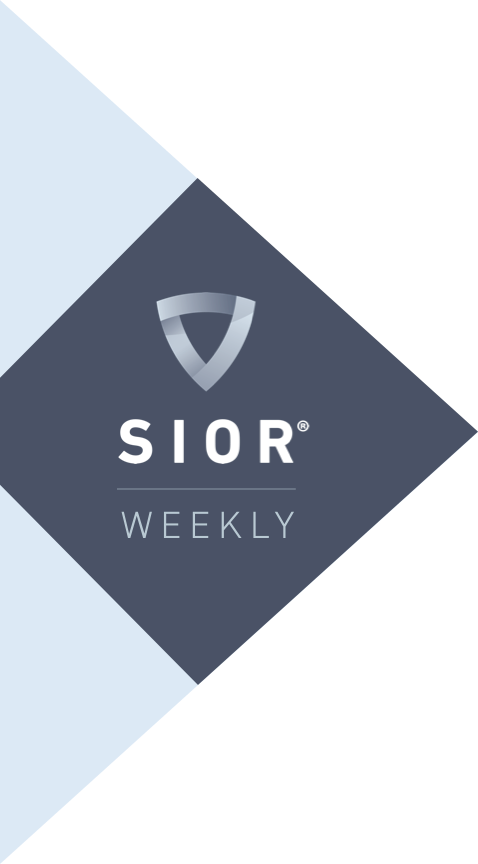The North American industrial manufacturing sector faces a dynamic landscape of challenges and opportunities. Globalization is shifting, with companies reevaluating their strategies due to geopolitical risks and the lessons of the pandemic. Reshoring and onshoring are on the rise, which has ushered in a new manufacturing ‘Supercycle’ that could shield North American manufacturers from global uncertainties.
Technological advancements, like automation and AI, offer promise but also raise questions about their impact on industrial operations. And supply chain disruptions and energy challenges persist, requiring manufacturers to adapt strategically to remain competitive. Against this volatile backdrop, four SIOR industry leaders hailing from the U.S., Canada, and Mexico, recently shared their insights on these transformative trends and the future of the Supercycle.
The Shifting Dynamics of Globalization
Long celebrated as the unstoppable force of economic integration, globalization is now undergoing significant recalibration. The rise of reshoring and onshoring efforts is a direct response to growing geopolitical risks, trade disputes, and the hard lessons learned during the COVID-19 pandemic. Companies are not just reevaluating their global supply chains; they are actively moving production closer to home to mitigate risks and maintain greater control over their operations.
"Over the past few years, we have realized as a nation that we can't be dependent on countries that are located a whole ocean away from us," says Conrad Madsen, SIOR, co-founder and partner at Paladin Partners in Dallas. This sentiment resonates across the industry as U.S. companies increasingly seek to reduce their reliance on distant manufacturing hubs, particularly in Asia, and especially in China.
To be sure, many U.S.-based and European companies have found an attractive alternative to Asian manufacturing in Mexico. "Something that they find very useful about Mexico is the size and availability of our labor force here," notes Baltazar Cantu, SIOR, industrial director at Colliers International in Monterrey, Mexico. He points out that Mexico's younger population and strong logistical and continental connections to the U.S. make it a compelling location for companies looking to diversify their operations and reduce geopolitical risk.
Cantu also emphasizes the strategic advantage of Mexico in this landscape, noting that "companies that are relocating from China not necessarily want to be in Mexico just to sell to the U.S.; they want to take advantage of their supply base already in Mexico." He explains that this dual-market access — north to the U.S. and south to Central and South America — adds to the appeal of Mexico as a manufacturing hub.
Manufacturing has long been a cornerstone of industrial development, driving economic growth and providing millions of jobs. Today, a resurgence of manufacturing in the U.S. is being fueled by a combination of government incentives and private sector investments.
The CHIPS Act and the Inflation Reduction Act have undoubtedly sparked a surge in manufacturing, particularly in high-tech sectors like semiconductors and electric vehicles. However, this growth raises important questions about its sustainability — what happens when or if these government-funded incentives dry up?
Chad Griffiths, SIOR, partner and associate broker at NAI Commercial Real Estate in Alberta, Canada, sees this as a major risk going forward: “A lot of this manufacturing that's being done in the U.S. and Canada is really driven by stimulus, and I question how much of this would be sustainable if it wasn't for these massive government-backed incentive programs,” he asks.
Technological Advancements and Automation: Double-Edged Sword
The industrial sector is in the midst of a technological revolution, with advancements in automation, AI, and robotics transforming operations across the board. While these innovations hold tremendous promise for increasing efficiency and reducing labor dependency, they also come with significant challenges.
Madsen underscores the necessity of automation, particularly in regions like Dallas-Fort Worth: “Automation is going to be a supplement to the human workforce, but it can be very expensive to integrate,” Indeed, the high cost of automation technology poses a barrier for many smaller businesses, creating a divide between those who can afford to invest in cutting-edge technologies and those who cannot.
In Mexico, Cantu observes that while the country is still more competitive in terms of labor costs, the pressure to adopt automation is growing. ""Mexican companies are now taking advantage of automation technology that has been common in the U.S. marketplace for years," he says. Although Mexico may lag the U.S. in adopting these technologies on a widespread basis, Cantu believes that much progress has been made in recent years as foreign companies have increasingly launched operations in Mexico.
Addressing Supply Chain and Energy Challenges
Supply chain disruptions and energy challenges continue to be pressing issues for the industrial sector, particularly in the wake of the pandemic. These challenges are exacerbated by the increasing demand for energy, which is outpacing supply in many regions.
Madsen notes that in response to the pandemic, many corporations have opted for additional warehouse space to maintain extra inventory, a strategy aimed at preventing the supply chain bottlenecks that plagued the industry in 2020 and 2021. However, he also highlights the growing energy crisis in North America: "We have demand for power increasing significantly faster than we're able to supply it," he warns, emphasizing the need for more investment in energy infrastructure and alternative sources.
This has significant implications for industrial operations, as the availability of reliable power is increasingly becoming a critical factor in real estate decisions.
Sustainability and Environmental Imperatives
Sustainability has evolved from a corporate buzzword to a crucial business imperative within the industrial sector. As regulatory pressures intensify and consumer expectations evolve, companies are being held to higher standards of environmental responsibility. However, achieving genuine sustainability is fraught with challenges, including the risk of ‘greenwashing’ — where companies make superficial environmental claims without meaningful action.
“Sustainability is very critical. It's also going to help drive innovation, increase efficiency, and enhance your company brand and reputation,” says Tim V. Tran, SIOR, president of The Ivy Group in Oakland, California. He warns that companies failing to prioritize sustainability risk being left behind as consumer and regulatory demands for responsible business practices continue to grow.
Navigating Geopolitical and Macro-Financial Trends
The industrial sector also is deeply intertwined with broader geopolitical and macroeconomic trends, particularly as the 2024 U.S. presidential election approaches. The election’s outcome, along with anticipated policy changes and potential Federal Reserve rate cuts, could significantly impact the industry.
“The outcome of the 2024 election will no doubt have an impact on our labor markets, given the possibility of broad policy shifts and new economic priorities,” says Tran. He also believes that these shifts could dramatically alter the operational landscape for many businesses, influencing everything from costs to regulatory compliance.
Cantu echoes these concerns, noting that the Mexican Federal Reserve typically follows the U.S. Federal Reserve's lead on interest rates. This alignment underscores the interconnectedness of North American economies and the importance of understanding the ripple effects of U.S. policy decisions on the broader region.
The insights shared by SIOR experts from across North America underscore a collective confidence and faith in the resiliency of the manufacturing ‘Supercycle.’ While challenges will inevitably persist, these leaders still believe that their industry is well-positioned to capitalize on the opportunities presented by a dizzying volume of changes. What’s more, their expertise and optimism will serve as a guiding light for companies seeking to emerge stronger on the other side of this transformative period.
ARTICLE CONTRIBUTORS

Baltazar Cantu, SIOR, is industrial director of the Monterrey Office at Colliers. With over ten years of experience in the industrial real estate sector, Cantu has participated in the lease and sale of more than 4 millions square feet within Mexico. His experience and knowledge of the northeast region of Mexico have helped several foreign and domestic companies in their site selection, purchase, and lease negotiation in the States of Mexico, Queretaro, Puebla, Sonora, Coahuila, Chihuahua, Nuevo Leon, Tamaulipas, and San Luis Potosi.

Chad Griffiths, SIOR, a partner at NAI Commercial Real Estate. He has worked in industrial real estate since 2005, and in addition to closely following market data and current trends, is fascinated with both the industry's rich heritage as well as what it might look like in the future. In 2020, he started a podcast called the Industrial Real Estate Show where he covers industrial real estate news and updates, tips and insights for investing in warehouses, weekly interviews with industry experts, and more.

Conrad Madsen, SIOR, is co-founder and partner at Paladin Partners. Over his career, he has azdvised for some of the largest corporations and institutions across the globe. His true passion is to use Paladin as the vehicle to impact others’ lives and the communities around us through the Paladin Partners Foundation and their industry-first “Give-Back” business model. Recently, he was identified as one of the Top 5 Commercial Real Estate Influencers in the World and was also inducted as a Texas Icon in Commercial Real Estate.

Tim V. Tran, SIOR, is founder and president at The Ivy Group. With a distinguished career spanning over 25 years, he has cultivated a wealth of experience advising corporations, municipalities and investors on intricate commercial real estate strategies, focusing on disposition, acquisition, and leasing activities. His extensive industry expertise encompasses advanced manufacturing, artificial intelligence (AI), cloud computing, eCommerce, healthcare, logistics automation, robotics, and software.






